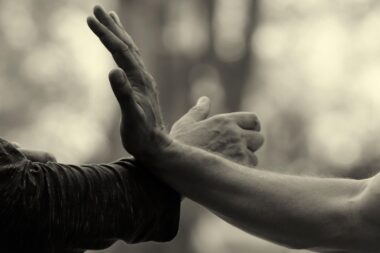Kabaddi as a Tool for Community Development
Kabaddi, a sport with deep cultural roots in South Asia, has evolved significantly over the years. Its growing popularity beyond geographical boundaries is remarkable. This ancient game not only boosts physical fitness but also serves as a vital platform for community engagement. Community development through kabaddi fosters unity, collaboration, and social cohesion among participants. Various local initiatives harness the game to enhance skills, build friendships, and promote mutual respect across different backgrounds. Moreover, kabaddi gatherings often bring diverse youth together, creating a vibrant atmosphere of teamwork and solidarity. Children and young adults learn the importance of fair play, leadership, and perseverance, essential traits that transcend sports and apply to life. The inclusivity of kabaddi allows individuals from different socio-economic backgrounds to compete on an equal footing, hence diminishing class barriers. Furthermore, local clubs and tournaments highlight regional talent and spark interest in the sport, ensuring future generations engage with kabaddi. As a result, kabaddi can be viewed as a catalyst for not only personal development but also broader societal change, benefiting communities at large in numerous beneficial ways furthering its significance.
Kabaddi’s role in community development extends beyond the playing field, impacting various social aspects significantly. This traditional sport promotes health and fitness, which is crucial in areas facing rising health challenges. In rural regions, regular engagement in kabaddi can combat sedentary lifestyles by encouraging physical activity. Healthy lifestyles lead to improved productivity and reduce healthcare costs for communities. Beyond physical benefits, participation in kabaddi cultivates essential soft skills, including communication, teamwork, and conflict resolution. As players work together on strategies and build team dynamics, they naturally enhance their interpersonal skills. This improvement in communication and cooperation contributes positively to community relationships. In schools, integrating kabaddi into physical education programs can stimulate interest in sports among students, targeting healthy habits from a young age while emphasizing discipline and respect. Additionally, local organizations can utilize kabaddi events to raise awareness regarding vital issues, including health and education. Social themes can be effectively communicated through kabaddi tournaments and exhibitions, creating an engaging environment for motivation. This blend of fun, learning, and social responsibility positions kabaddi as a transformational tool for positive community growth.
One significant advantage of kabaddi is its accessibility and low-cost requirements, making it a pragmatic option for community development initiatives. Unlike many sports that rely upon expensive equipment or facilities, kabaddi requires minimal setup, providing opportunities for everyone to participate. Community members can easily organize matches in open fields, leveraging available resources without heavy financial investments. Organizations aiming to promote physical fitness and sportsmanship among youth can implement training programs at little cost, encouraging grassroots participation. This accessibility fosters broader interest and inclusion, empowering underprivileged sections of society to engage in positive activities. As the sport grows in popularity, local governments often recognize its potential and invest in infrastructure improvements, giving communities necessary support. Investing in kabaddi often translates to better recreational facilities, parks, and fields, enhancing overall community environment. It creates a sense of pride and ownership among residents. Kabaddi federations and associations may collaborate with schools and local bodies to create structured programs, providing support and resources. These initiatives nurture talent and keep youth engaged, distracting them from negative influences and promoting a more active lifestyle in the community. Thus, kabaddi plays a pivotal role in fostering healthy community growth.
The Educational Impact of Kabaddi
Beyond mere physical engagement, kabaddi serves as a catalyst for educational development within the community. Schools integrating kabaddi into their curricula have witnessed increased student attendance and interest in academics. The sport’s teamwork and strategy aspects parallel crucial skills in classroom settings, enhancing students’ cognitive abilities and encouraging active engagement. In areas where dropout rates are concerning, kabaddi practices can create a sense of belonging and commitment to education among participants. Local educators emphasize the importance of discipline and respect both in sports and academics, stemming from kabaddi participation. The excitement surrounding kabaddi competitions motivates students to stay in school to represent their teams, thus boosting overall educational achievement. Moreover, community tournaments often incorporate educational workshops or seminars that focus on health, career guidance, or life skills alongside the games. Collaborations with NGOs or educational institutions can further strengthen this aspect. Introducing health education regarding diet and exercise is essential for overall growth. As young people engage in learning while playing, kabaddi promotes a holistic growth framework, enabling youths to become well-rounded individuals ready to contribute positively to society, thus reinforcing its importance in education-centric community development.
The influence of media coverage on kabaddi’s reach and its role in community development cannot be underestimated. The embrace of digital platforms has amplified the visibility of the sport. Documentaries, social media campaigns, and television broadcasts showcase captivating moments from matches, attracting audiences beyond local fans. This exposure helps in creating role models and inspiring youth to take part in sports. As kabaddi gains popularity, sponsors and local businesses may want to promote awareness, driving financial support to boost community initiatives. This support can, in turn, lead to funding that develops programs centered around youth and sports development. Social media campaigns can amplify local kabaddi events, raising funds for development projects, scholarships, or facility improvements. Additionally, media portrayals of kabaddi can challenge societal norms, showcasing women and marginalized groups prominently within the sport. As these narratives shift, communities might feel empowered to support inclusivity and equality in sports and beyond. Consequently, effective media engagement can increase community investment, allowing for better infrastructure and greater access to opportunities while ensuring kabaddi’s legacy grows towards continuous development and social transformation.
Unity and Cultural Preservation
Kabaddi serves as a marker of cultural identity, particularly in regions with strong traditions tied to the sport. Community development through kabaddi contributes to preserving cultural practices and values, offering a space for generations to experience and engage in their heritage. Events surrounding kabaddi often celebrate local customs, art forms, and cuisine, creating a platform for cultural exchange and tourism. By hosting kabaddi tournaments, communities can attract visitors who appreciate the sport and the cultural significance it carries. These celebrations foster dialogue and collaboration among participants, building bridges across varying backgrounds. This unity turns into a powerful tool for mutual appreciation and respect, mitigating tensions and disputes within diverse communities. Moreover, kabaddi clubs frequently serve as safe spaces for families, providing social connection amidst changing societal dynamics. Children learn the values of cultural heritage while developing sporting skills, promoting the warm aspects of community life. By embedding traditional elements into kabaddi, communities can revitalize interest in their rich past while embracing modern values. Ultimately, kabaddi stands out as a bridge for unity, connecting individuals through a shared passion while also preserving cultural legacies and enhancing community bonds.
The community-led initiatives involving kabaddi are successful partly due to the volunteer spirit which surrounds the sport. Resilient community members often unite to organize leagues, training camps, and tournaments, placing value on collective efforts. This involvement fosters teamwork, accountability, and social responsibility, reinforcing community bonds among volunteers. By coming together to ensure basketball meets outlined objectives, individuals come to realize the importance of supporting one another. The skills nurtured through this shared engagement are vital in bringing about meaningful change and inclusivity, resulting in lower crime rates and increased local pride. Moreover, these programs provide opportunities for youth mentorship, where experienced players guide newcomers and impart essential life lessons. Volunteer engagement becomes transformative for both mentors and mentees, promoting civic participation and community leadership. Community members often share personal stories and experiences during kabaddi events, inspiring others to push their limits. By leveraging local talent and resources, players, organizers, and volunteers contribute toward a brighter future collectively. Together, they help create environments where everyone feels valued, and the positive impacts of kabaddi extend beyond the playing field, creating a lasting legacy of hope and progress.
The potential of kabaddi as a sustainable avenue for community development is noticeable and impactful. By fostering physical and mental wellness, enhancing educational pathways, promoting cultural pride, and advocating inclusivity, the sport generates constructive avenues for growth. As communities rally around kabaddi, they naturally cultivate a sense of belonging while nurturing talents that may flourish in broader contexts. Sustainability in community development is rooted in a culture of sharing, support, and growth, elements consistently demonstrated in kabaddi culture. In these shared experiences, individuals learn the significance of teamwork, compassion, and resilience, shaping not only themselves but the communities they represent. Continuous investment in kabaddi as a primary tool for development can bring forth enduring benefits, strengthening social, emotional, and economic ties over time. Furthermore, as community leaders and organizations recognize these benefits, they can work collectively to ensure that kabaddi remains a focal point for future initiatives. Establishing partnerships with schools, local businesses, and health organizations can ensure the longevity of these initiatives. Therefore, kabaddi is not merely a sport; it is an essential fabric of social development. Its profound impact holds the key to unlocking the true potential of communities as they navigate through modern challenges.





